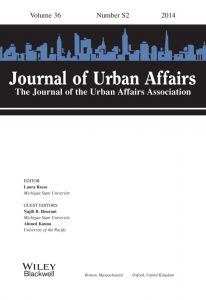Selected Politics Concerning Natural Hair
The term “natural hair” is used in the African American community to differentiate between hair that has been left in its natural state and hair which has been permed (which is to permanently straighten the hair follicle with chemicals). African American hair in its natural state appears tightly coiled or kinky and is often socially stigmatized. Social stigmas are any idea that individuals associate with negative connotations. Many individuals would agree that hair is a prevailing symbol of one’s self...



1754-9469/asset/society_affiliation_image.gif?v=1&s=9197a1a6ba8c381665ecbf311eae8aca348fe8aa)